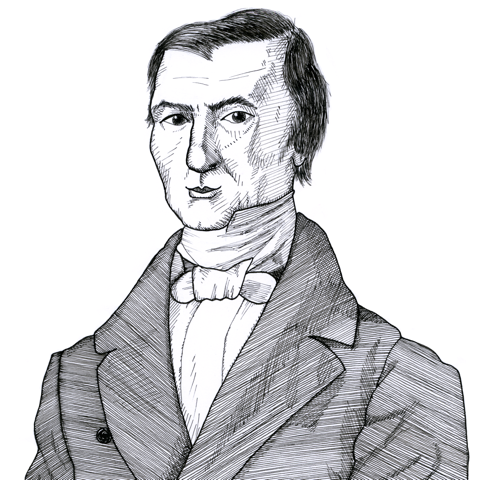
Bastiat, the 1830 Revolution, and the Spilling of Wine not Blood (1830)
The young Frédéric Bastiat helped tip the balance in the garrison of the city of Bayonne during the 1830 Revolution. With a combination of his wit and charm, copious servings of the local red wine, and the singing of political songs by the liberal poet Béranger, he was able to persuade the officers of the garrison to support Louis Philippe and the constitutional monarchists:
Food & Drink
The 5th (August) at midnight
I was expecting blood but it was only wine that was spilt. The citadel has displayed the tricolor flag. The military containment of the Midi and Toulouse has decided that of Bayonne; the regiments down there have displayed the flag. The traitor J—— thus saw that the plan had failed, especially as the troops were defecting on all sides; he then decided to hand over the orders he had had in his pocket for three days. Thus, it is all over. I plan to leave immediately. I will embrace you tomorrow.
This evening we fraternized with the garrison officers. Punch, wine, liqueurs, and above all, Béranger contributed largely to the festivities. Perfect cordiality reigned in this truly patriotic gathering. The officers were warmer than we were, in the same way as horses which have escaped are more joyful than those that are free.